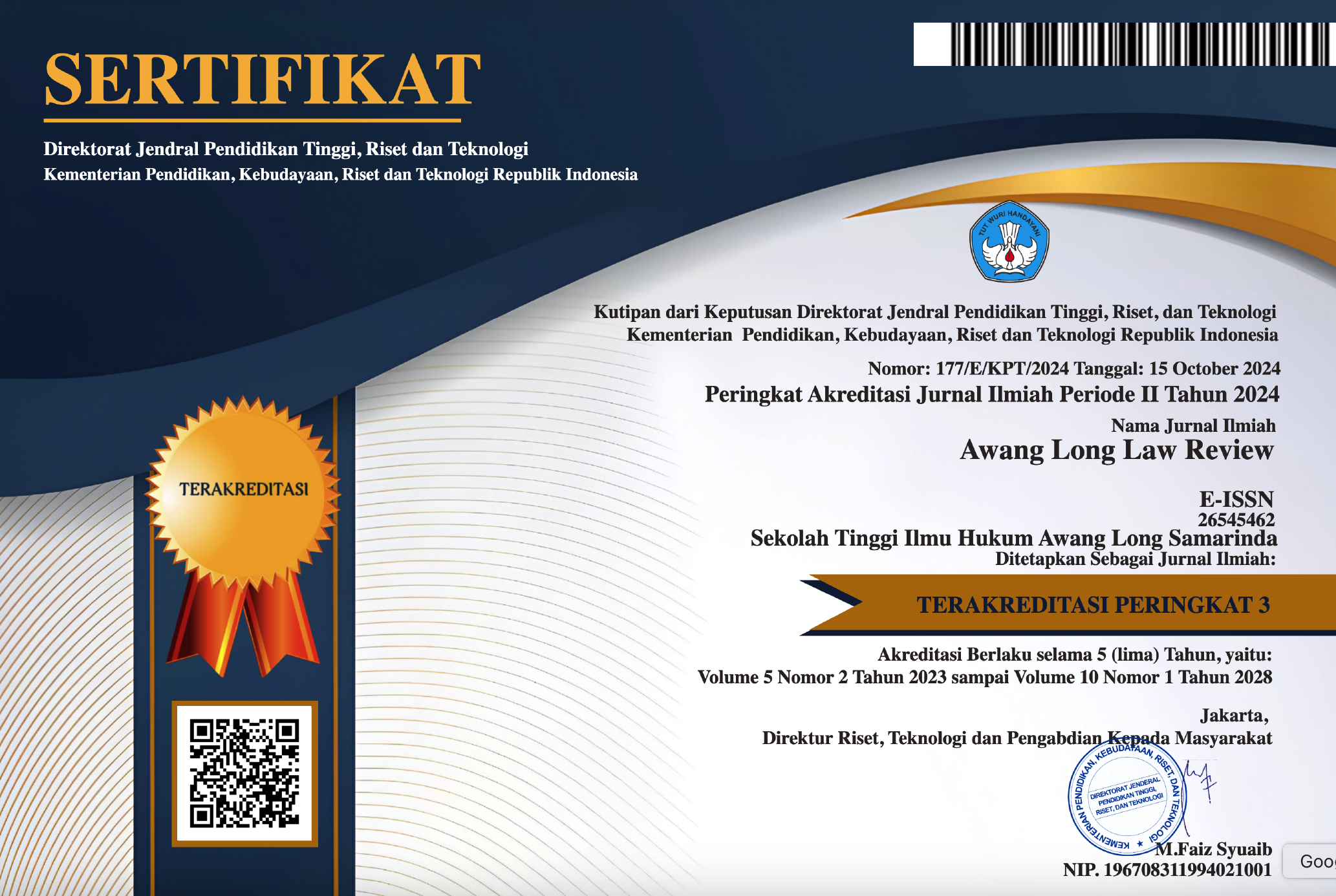NON-PENAL MEASURES AGAINST THE CIRCULATION OF TRADITIONAL LIQUOR "SOPI" DURING COVID-19 PANDEMIC
Abstract
Article 29 paragraph (1) of the 1945 Constitution of the Republic of Indonesia states that the state is based on the One Godhead, but in responding to developments regarding alcoholic beverages, the government cannot do anything. Meanwhile, the right to a healthy environment in human life is a human right which is guaranteed in Article 28 H paragraph (1) of the 1945 Constitution of the Republic of Indonesia which states: "Everyone has the right to live in physical and spiritual prosperity, to have a home and to obtain a good and healthy living environment and the right to obtain health services. The development of the spread or circulation of traditional liquor during the Covid-19 pandemic in Jezirah Lehitu in Negeri Asilulu and Negeri Kaitetu (Kalaili Village) really needs special attention from the government. This is because in society, it is not only adults who consume liquor but also many teenagers who consume it. Consumption of alcoholic beverages is a problem that needs to be tackled together. Alcohol is consumed in traditional activities, religious ceremonies, as well as in daily stalls and local security posts (Pos Keamanan Lingkungan/Poskamling). For this reason, non-penal means are needed to overcome the circulation of traditional liquor in the Negeri Zeith, Negeri Asilulu, and Negeri Kaitetu during the covid-19 pandemic, this can be done in three ways, namely as follows pre-emtive efforts, preventive efforts, and repressive efforts. Governments in these three countries can work together with traditional leaders and religious leaders to convince the public in terms of instilling good values where these values have been displaced by an unfavorable culture and the police need to increase their efforts to supervise the circulation of traditional liquor sopi.
Downloads
Copyright (c) 2021 Awang Long School of Law

This work is licensed under a Creative Commons Attribution-ShareAlike 4.0 International License.







